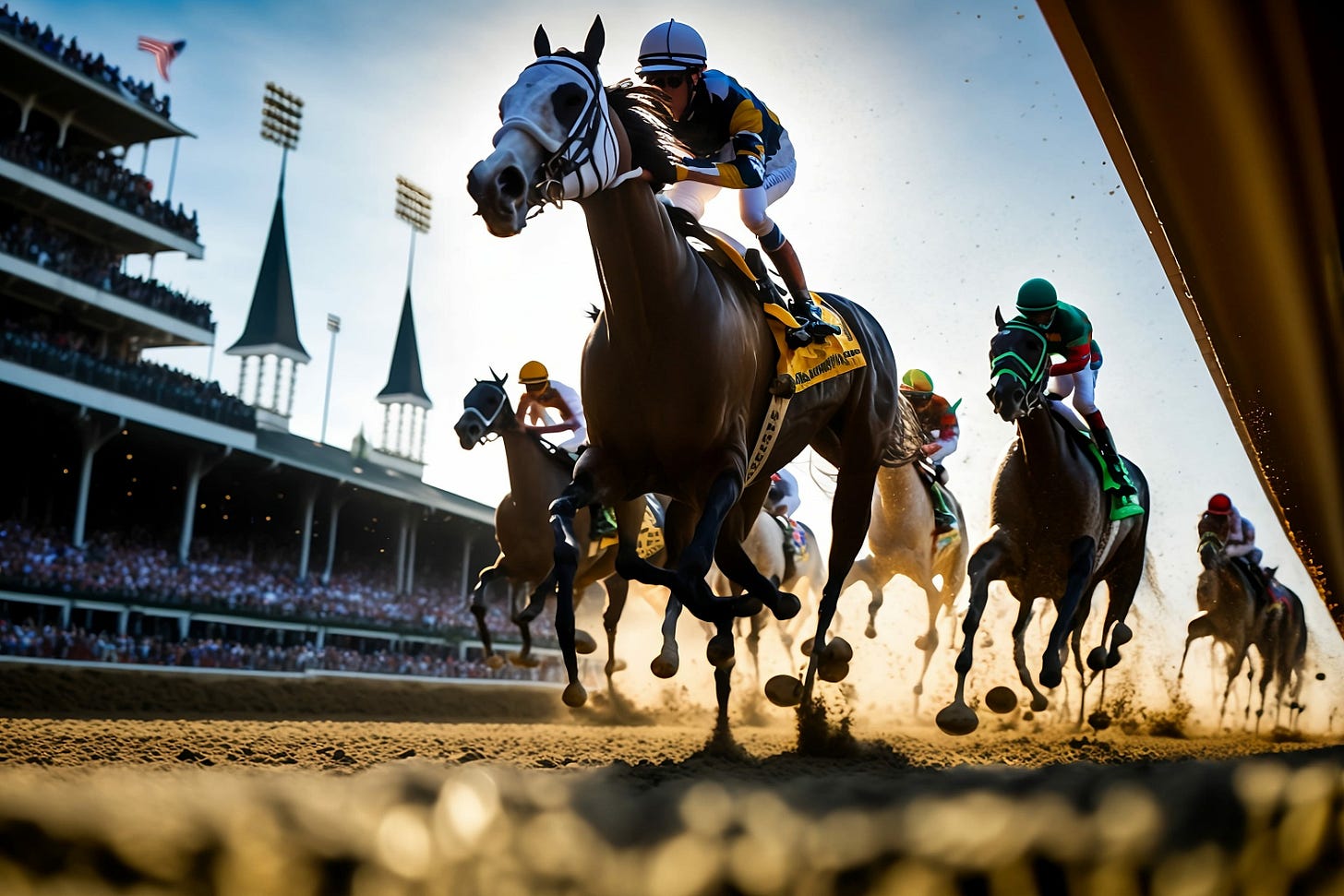Of Horses, Stocks, and The Economy
What can a race horse teach us about the difference between the stock market and the economy?
Race horses often wear blinders (also called blinkers) to help them focus on the race and minimize distractions.
We can learn something from this—at least when it comes to investing and the stock market.
In our post, Perspective - Choose Your Lens (Core Post No 3), we made the case that you should distinguish between your short-term and long-term investments.
Even within a single portfolio, like your retirement portfolio, you have—or eventually will have—both.
If you’re in or approaching retirement, the money you’ll be using in the next 3 to 5 years constitutes your Short-term Portfolio. The goal of your Short-term Portfolio is to protect principal and keep up with inflation.
You should not include Stocks in your Short-term Portfolio due to their short-term volatility. Stocks are the most risky of the three major asset classes (Stocks, Bonds, and Cash) in the short term.
Of course, you shouldn’t stop investing just because you reach retirement. You need to continue to grow your portfolio in order to have a sufficient amount of retirement income in later years.
Stocks give you the best chance of achieving your long-term financial goals (generally 10 to 15 years and longer). They are the least risky asset for your Long-term Portfolio due to their superior long-term compounding rate (compounding is the secret to investing).
Since investing in the stock market is tied to achieving your long-term financial goals, you should avoid focusing on the inevitable short-term ups and downs of the stock market. These will even out over time.
Hence the blinders.
If you can learn to ignore the overwhelming daily stock market commentary—especially in periods when the market is going down—you’ll ultimately end up with more money and less stress.
The Economy
It’s not quite the same when it comes to the economy.
While history teaches us that we can count on the stock market to eventually recover, issues like inflation, recession, etc., have an immediate impact on everyone.
The stock market is not the economy.
The imminent prospect of higher inflation (potentially higher than what we experienced during the pandemic) is a serious problem and difficult to ignore.
The increased likelihood of a recession is hard to ignore as well.
These are far more serious issues than the stock market, and blinders won’t work here.
Individuals and companies will face difficult choices.
Many of the best companies will discover ways to deal with this. These are the companies that will—eventually—lead the stock market back up.
If you invest in a market-cap-weighted index (like the S&P 500), you will automatically own these companies. You are, essentially, riding the winners.
Companies that fail to adapt will become an increasingly lower drag on the performance of the index.
Summary
Unfortunately, we can’t say, “Don’t worry about anything.” The impact of recent policy decisions on the economy will likely be difficult for many people.
We can, however, say that you don’t need to stress about the long-term impact on your investment portfolio.
Be patient and give it time.
There’s at least one less thing you need to worry about.
Best regards,
Stuart & Sharon


